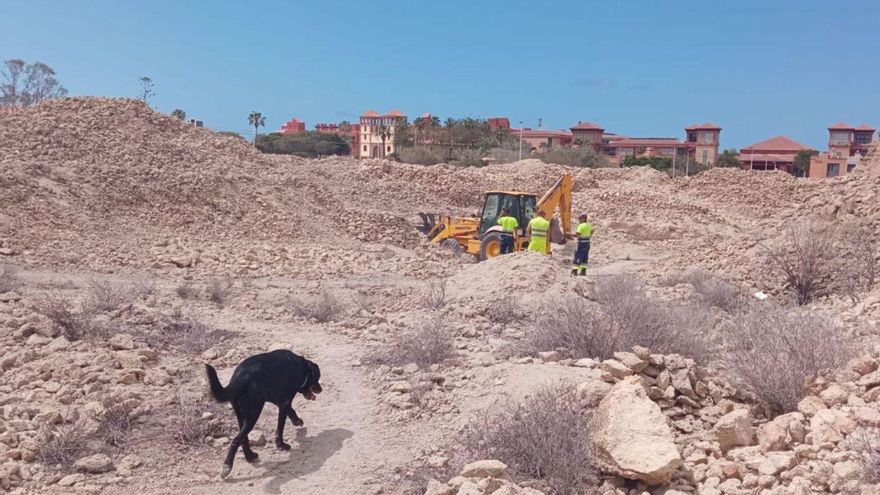
The Adeje City Council yesterday evicted 60 people who lived in caves and dwellings built with stones in the Barranco del Agua or Camino de la Virgen. They are part of a group of 100 that was in public spaces, while another group of about 40 people stays in a private farm. Cáritas monitored the device in which the Civil Guard and the Local Police participated.
The voluntary eviction notice to those 60 people was delivered to them about ten days ago. Yesterday, the version made public, given the silence maintained by the municipal government, reflected that the abandonment of the place occurred unilaterally by those affected. Some of them were located a few hundred meters into the ravine on another privately owned property.
“Of the 60 people who left, none has an alternative accommodation offered by the City Council, as far as we know,” they indicate from Cáritas. “Of the 30 cases that we closely monitor and that correspond to situations and serious conditions of exclusion, neither.”
Cáritas prepared a study on severe residential exclusion whose update will be presented in June. “We do not understand this type of eviction when there is no habitability alternative for situations such as those indicated.” In the specific case, the Mobile Street Care Unit presented the Adeje City Council with the report requested by the Consistory on the situation of the population living in the Barranco del Agua or Camino de la Virgen.
The document, according to Caritas, reflects the presence of a hundred people, of which “a part moves freely, is not linked to social services or seeks such a relationship.” In addition, among this group there are about thirty neighbors “identified as most vulnerable.” Of these, “seven are of special concern to us, because they add highly vulnerable conditions as they are people over 60 years of age and have serious health problems who have lived in the ravine for quite some time,” they point out from the organization.
The presence of Cáritas personnel, social workers and the intermediation of the Government of the Canary Islands led to “some people leaving voluntarily and others invited to do so before the possibility of being fined,” says the organization.
It so happens that some of those evicted were previously evicted from the La Caleta space of scientific interest, on July 14, 2020.
The eviction operation of the Barranco del Agua will continue today, the only aspect known through the City Council, which yesterday repeatedly denied any pronouncement on this eviction in the Barranco del Agua and that even surprised Cáritas.















